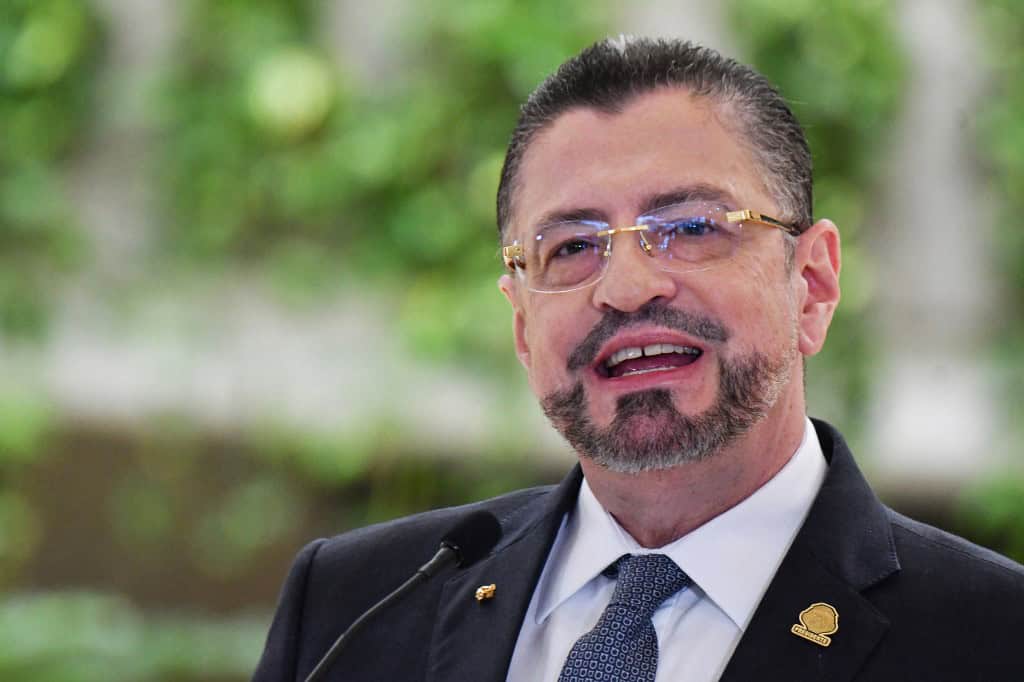Costa Rica’s President Rodrigo Chaves signed a constitutional reform on Wednesday allowing, for the first time in the country’s history, the extradition of Costa Rican nationals accused of drug trafficking and terrorism, the government announced. Once the safest country in Central America, Costa Rica ended 2024 with a homicide rate of 16.6 per 100,000 people—more than double the global average.
Costa Ricans may now be extradited for “international drug trafficking or terrorism” charges following the constitutional amendment passed by the Legislative Assembly on May 15 and signed by Chaves on Wednesday, according to the government statement. “This reform will allow Costa Ricans wanted in other countries,” including the United States, “to be extradited and tried in those nations’ courts,” the statement added.
The reform, which will take effect once published in the official government newspaper La Gaceta in the coming days, was also signed by Minister of Public Security Mario Zamora and Minister of Justice and Peace Gerald Campos. “The Assembly took a bold and effective step that had been postponed for many years,” Chaves said in a press conference.
“Extradition is a key tool in the fight against organized crime and sends a message of trust and responsibility between our countries,” added Mike Flores, chargé d’affaires at the U.S. Embassy in Costa Rica. The reform “closes a legal loophole” that had “been used for decades by foreign criminals naturalized as Costa Ricans to evade international justice,” the government said.
Long praised for its safety and peace, Costa Rica recorded 907 violent deaths in 2023, a rate of 17.2 per 100,000 people—a record high. Last year saw 880 homicides, a rate of 16.6, the second-highest in its history, according to official data. In April, Costa Rica’s Minister of Justice visited El Salvador to learn from that country’s fight against crime. President Nayib Bukele has launched an aggressive campaign against gangs.
The Costa Rican official toured the Terrorism Confinement Center (Cecot) and expressed interest in implementing similar maximum-security measures for gang members in Costa Rica.






